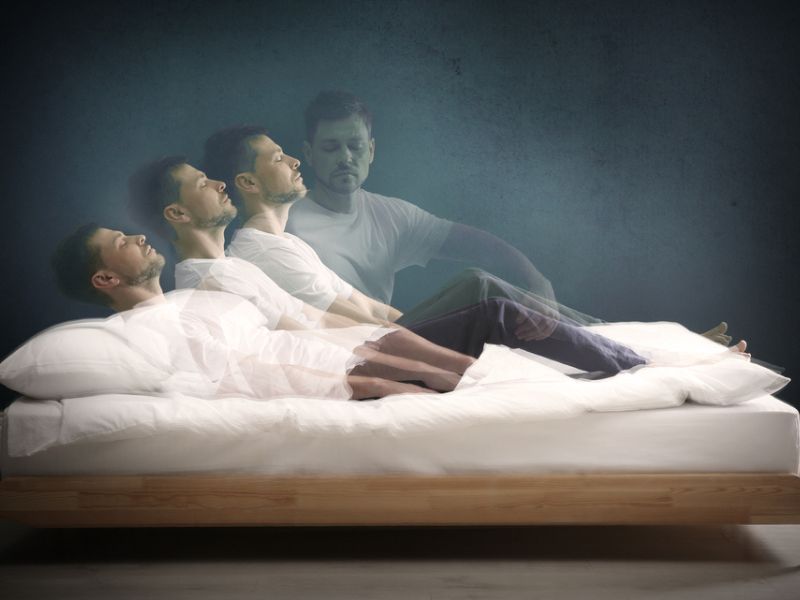Sleep paralysis is a terrifying experience when a person cannot move their body upon awakening from sleep or falling asleep. It is estimated that up to 8% of the general population experiences rest paralysis at some point in their lives, making it a relatively common phenomenon.
During sleep paralysis, the person is aware of their surroundings but cannot move or speak. They may also experience hallucinations, often terrifying, and feel pressure on their chest. The experience can last for several seconds to several minutes, and it can be difficult to distinguish between reality and hallucinations.

Image Credit: Shutterstock/Africa Studio
The experience of sleep paralysis can be terrifying and disorienting. People who experience it often report feeling as if they are suffocating or being strangled, which can lead to panic and anxiety. Additionally, the hallucinations can be incredibly vivid and disturbing, ranging from seeing a shadowy figure in the room to feeling as if they are being dragged out of bed.
There are several potential causes of sleep paralysis, including a disrupted sleep schedule, sleep deprivation, and certain medications. It is also more common in people with a history of anxiety, depression, or other mental health conditions.
While sleep paralysis is not considered dangerous, it can significantly impact a person’s mental health and overall well-being. People who experience sleep paralysis may develop anxiety or fear around going to sleep, leading to insomnia and other sleep disorders.

Image Credit: Shutterstock/New Africa
Fortunately, there are ways to manage and reduce the occurrence of sleep paralysis. Maintaining a regular sleep schedule, practicing good sleep hygiene, and seeking treatment for any underlying mental health conditions can all be helpful. In some cases, medication or therapy may be necessary to address the symptoms of sleep paralysis.
Sleep paralysis is a frightening experience that can significantly impact a person’s life. However, with proper treatment and management, it is possible to reduce the frequency and severity of episodes and improve overall sleep quality and mental health.